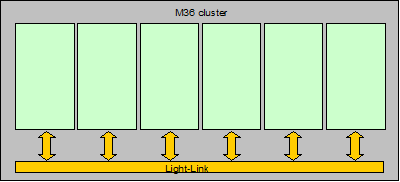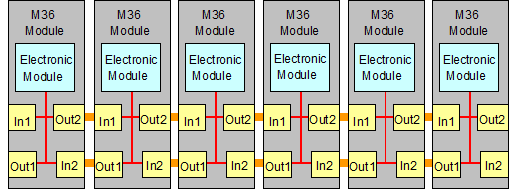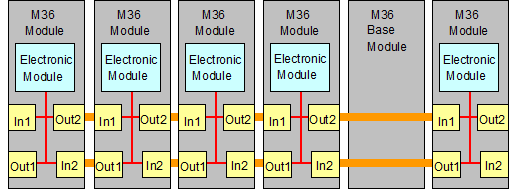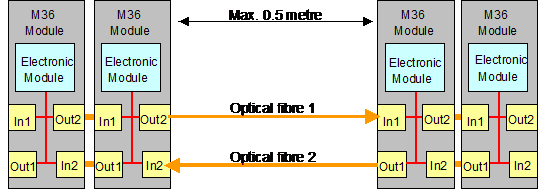P-NET Light-Link

Light-Link provides an optical communication link for P-NET.
In P-NET networks, where all devices are interconnected exclusively by Light-Link, communication speeds of up to 230.4 kbit/s are permitted.
This is 3 times the normal P-NET speed when compared with using standard RS485 connections.
Light-Link also provides galvanic isolation between each member in a communication chain.
Light-Link always uses “one way traffic” for the communication signal. Thus a light transmitter (Out) is always connected to a light receiver (IN).
Each station in a Light-Link chain receives, amplifies and retransmits the signal.
In M36 clusters Light-Link is used for module-to-module communication. The base modules contain light conductors which guide the light between modules:

M36 allows hot swapping of one module without disturbing the Light-Link communication within the rest of the cluster.
When a module is removed the base module will still transfer the light:

It is possible to break a chain of M36 modules into two or more module groups. The Light-Link connection between the groups is achieved by the use of optical fibres.
When using optical fibres for Light-Link; two fibres are always required for each link:

The maximum length for an optical fibre in a Light-Link is 0.5 metre.
If M36 clusters each having independent P-NET networks are both mounted on the same DIN rail, light emitted from one cluster could interfere with the Light-Link in the other cluster. In such installations, it must be ensured that there is no optical line-of-sight between the clusters.
Light-Link P-NET topics
Light_Link introduction
Making a optical fibre connection
Example of optical fibre: HFBR-RUS.
Hot Swapping




